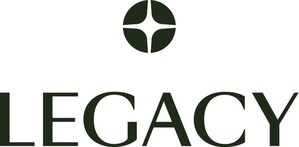WASHINGTON, June 11, 2013 /PRNewswire-USNewswire/ -- In an important step forward for victims of the past predatory marketing practices of Big Tobacco, the Massachusetts Supreme Judicial Court issued today its decision in Evans v. Lorillard, upholding $35 million in compensatory damages against Lorillard, the makers of mentholated Newport cigarettes. However, in a mixed decision it sent other key portions of the case back to the trial court for further proceedings and reversed on several other issues. Marie Evans, an African American and life-long Newport smoker died in 2002 from cancer caused by her smoking. She had begun smoking when she was only a young child, lured by free menthol-flavored Newport samples given away to children near the Orchard Park Housing Project in Roxbury, Massachusetts, where she lived.
(Logo: http://photos.prnewswire.com/prnh/20101101/DC86294LOGO)
In one of the most notable aspects of the decision, the Court found that Newport cigarettes are "defective" products. Cigarette companies have long argued that cigarettes aren't "defective" under the law because cigarettes are inherently dangerous. But this Court determined that the real question is whether the risk of harm could have been reduced by a "reasonable alternative design". It agreed with Ms. Evans and her family that such an alternative would be a cigarette with, among other things, non-addictive levels of nicotine. Of particular note, the Court concluded that to determine whether there was such a reasonable alternative, the proper point of reference was not an addicted smoker but rather "a rational, informed consumer whose freedom of choice is not substantially impaired by addiction."
While the court affirmed the lower court decision in part, it vacated and remanded for further proceedings other important parts of the case including whether Lorillard's negligent design and marketing of the menthol cigarettes contributed to Evan's death along with the jury's groundbreaking award of $81 million in punitive damages. We are disappointed in this aspect of the decision and hope that the plaintiffs will continue to actively pursue their claims. This is extremely important given that research confirms not only that menthol cigarettes are a starter product for youth, but also that the tobacco industry has a long history of targeting menthols to youth and communities of color. In fact, the overwhelming majority of African-American smokers, smoke menthols. This includes nearly 85% of African American high school students who smoke and nearly 85% of adult African-American smokers.
Marie Evans tragically died as a result of her childhood addiction to mentholated cigarettes. Many more will continue to follow suit until the US Food and Drug Administration acts to ban menthol flavored cigarettes, bringing menthol into line with the US Family Smoking Prevention and Tobacco Control Act of 2009's ban on all other candy-flavorings in cigarettes. The public health community and policy makers must continue to raise awareness about the burden of tobacco, very much including mentholated products, on low socio-economic (SES) and minority communities. We must also continue to fund education programs that prevent young people from starting and that help smokers quit. We need to collectively push for health care policies that make life-saving resources available to those who need it the most.
Legacy filed an amicus curiae brief in the Massachusetts Supreme Judicial Court in support of Ms. Evans on behalf of itself and fourteen other leading tobacco control and public health organizations. The brief focused on the particular dangers of menthol cigarettes.
LEGACY
Legacy helps people live longer, healthier lives by building a world where young people reject tobacco and anyone can quit. Legacy's proven-effective and nationally recognized public education programs include truth®, the national youth smoking prevention campaign that has been cited as contributing to significant declines in youth smoking; EX®, an innovative public health program designed to speak to smokers in their own language and change the way they approach quitting; and research initiatives exploring the causes, consequences and approaches to reducing tobacco use. Located in Washington, D.C., the foundation was created as a result of the November 1998 Master Settlement Agreement (MSA) reached between attorneys general from 46 states, five U.S. territories and the tobacco industry. To learn more about Legacy's life-saving programs, visit LegacyForHealth.org.
Follow us on Twitter @legacyforhealth and Facebook www.Facebook.com/Legacy.
SOURCE Legacy
WANT YOUR COMPANY'S NEWS FEATURED ON PRNEWSWIRE.COM?
Newsrooms &
Influencers
Digital Media
Outlets
Journalists
Opted In





Share this article